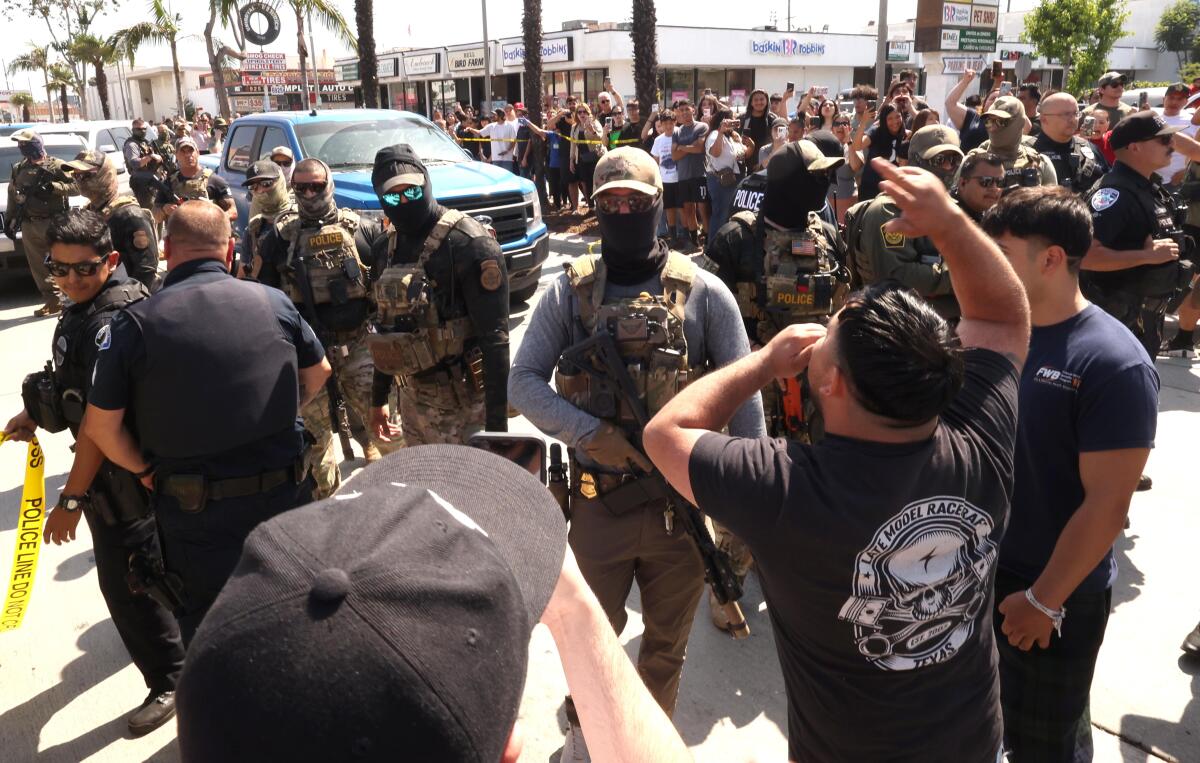UPDATE: A federal appeals court is poised to uphold a decision blocking the Trump administration’s controversial immigration tactics, particularly “roving patrols” in Southern California. This urgent development could set the stage for another significant showdown at the Supreme Court.
During a 90-minute hearing on Monday, judges from the 9th Circuit Court of Appeals scrutinized the legality of actions by U.S. Customs and Immigration Enforcement (ICE) agents. Judge Ronald M. Gould questioned the rationale behind ICE’s aggressive sweeps, emphasizing the lack of reasonable suspicion for detaining individuals. “What would motivate the officers…to grab such a large number of people so quickly?” he asked, highlighting the potential violation of the 4th Amendment rights of citizens.
Earlier this month, Judge Maame Ewusi-Mensah Frimpong issued a temporary restraining order halting these operations, asserting they violate constitutional protections against unreasonable searches and seizures. The Justice Department has labeled this decision as a “wholesale judicial usurpation,” arguing it undermines federal authority. Deputy Assistant Attorney General Yaakov M. Roth stated, “It’s a very serious thing to say that multiple federal government agencies have a policy of violating the Constitution.”
However, the 9th Circuit panel appears skeptical of the administration’s claims. Judges Jennifer Sung and Marsha S. Berzon joined Gould in questioning the government’s stance. “If you’re not actually doing what the District Court found you to be doing, there should be no harm,” stated Judge Sung, challenging the justification for ICE’s operations.
The injunction prohibits ICE from using race, ethnicity, or location as pretexts for enforcement across several counties, including Los Angeles, Riverside, and San Bernardino. Judge Frimpong noted that relying solely on these criteria does not meet the necessary legal standard for reasonable suspicion. “It appears that they are randomly selecting Home Depots…because they’re car washes,” Berzon remarked, questioning the validity of ICE’s operational methods.
The stakes are high, with both sides citing precedents from previous rulings. The Justice Department references the 1983 Supreme Court decision in City of Los Angeles vs. Lyons, which limited blanket bans on police practices. Meanwhile, the ACLU points to the Easyriders Freedom F.I.G.H.T. vs. Hannigan case, arguing for broader protections under the 4th Amendment for residents in the American West.
Experts argue that the implications of this case extend far beyond individual arrests. “The government did not present any alternatives…that would provide adequate relief to our plaintiffs,” said ACLU attorney Mohammad Tajsar, emphasizing the dangers of indiscriminate enforcement. The potential for wrongful detainment—impacting both undocumented immigrants and U.S. citizens alike—has raised significant alarm among civil rights advocates.
As this legal battle unfolds, the Justice Department insists ICE complies with the Constitution and warns that the injunction may deter lawful arrests. Professor Erwin Chemerinsky of UC Berkeley noted, “If it’s chilling ICE from violating the Constitution, that’s where they’re supposed to be chilled.”
A ruling from the 9th Circuit is expected as soon as this week, and Roth indicated that the administration is likely to appeal if the panel does not grant its stay. The outcome of this case could reshape immigration enforcement tactics and the legal landscape surrounding the 4th Amendment.
Stay tuned for updates on this developing story as the implications for immigration policy and civil rights continue to unfold.
